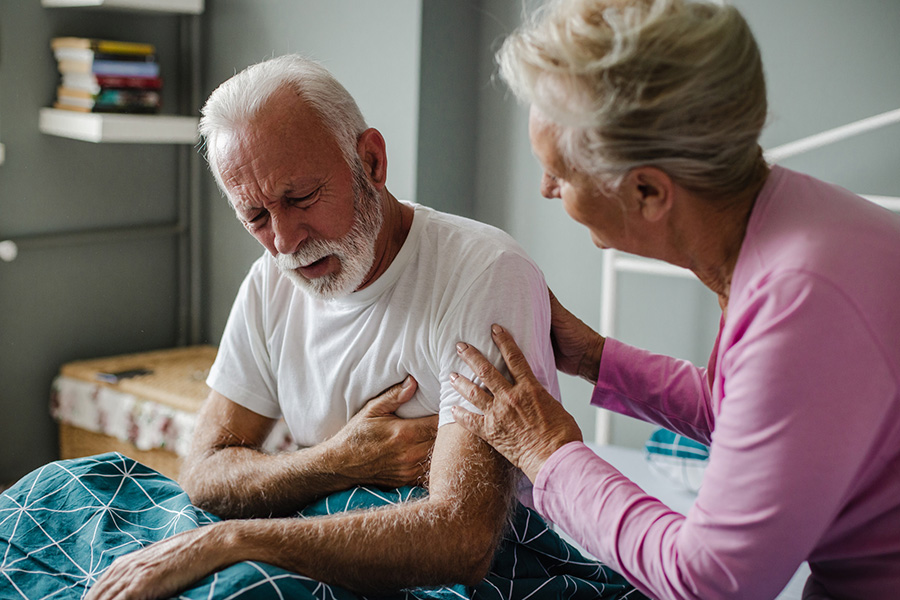Stroke is often called a “brain attack”—and for good reason. When it strikes, every second is critical. According to Dr. Bala Simon, Deputy Chief Medical Officer at the Arkansas Department of Health, stroke remains one of the leading causes of death in Arkansas and across the US. Thankfully, stroke is largely preventable with the right preventive strategies.
Dr. Simon recently appeared on an episode of AFMC TV to talk about how patients can protect themselves and their loved ones. Here’s what you need to know:
What causes a stroke?
There are two main types of stroke:
- Ischemic stroke, the most common kind, happens when a blood clot blocks blood flow to the brain.
- Hemorrhagic stroke occurs when a blood vessel in the brain bursts, causing bleeding.
In both cases, the brain is suddenly deprived of oxygen, and brain cells begin to die within minutes. Such a short timeframe before things get serious makes it critically important to understand stroke risk factors, prevention, and symptoms.
Common stroke risk factors
The biggest risk factors for stroke are medical or lifestyle-related:
- High blood pressure (highest risk factor)
- High cholesterol
- Diabetes
- Atrial fibrillation (irregular heartbeat)
- Smoking
- Heavy alcohol consumption
- Heavy drug use
- Family history of stroke
“These are all things that can be monitored and managed,” Dr. Simon emphasized. “But many people don’t know their risk until something happens.”
How to prevent a stroke
The same healthy habits that protect the heart also protect the brain. Dr. Simon recommends:
- Regular checkups with a doctor. Yearly checkups help detect things like high blood pressure, high cholesterol, and diabetes early.
- Quitting smoking and limiting alcohol or drug use.
- Eating a nutritionally balanced meal, including lean proteins, vegetables, fruits, and fewer processed or red meats.
- Regular physical activity lowers blood pressure and stress, releasing feel-good hormones that support mental health.
If a patient has had a mini-stroke or a family history of stroke, don’t take it lightly. Early warning signs should never be ignored.
Learn more about stroke risk in vulnerable populations.
Need a refresher on treatment options? Check out new treatments in stroke prevention.
Know the Signs: Use B.E. F.A.S.T.
When preventing strokes, fast action saves lives. Many stroke experts use the acronym B.E. F.A.S.T. to remember stroke symptoms quickly.
- B—Balance: Sudden loss of balance or coordination
- E—Eyes: Sudden vision changes or trouble seeing
- F—Face: Drooping on one side of the face
- A—Arms: Weakness or numbness in one arm
- S—Speech: Slurred or confused speech
- T—Time: Call 911 immediately.
For the sake of the acronym, the T is at the end, but really, timing is key. Calling emergency services immediately upon noticing symptoms is crucial. Patients should never drive themselves or try to wait out the stroke. Treatments work best within the golden hour after symptoms start.
Stress, Mental Health, and Stroke
Stress isn’t just uncomfortable. It can be dangerous. Dr. Simon explained how stress triggers hormones like cortisol and adrenaline, which raise blood pressure and cause heart rhythm problems. Over time, unmanaged stress increases stroke risk.
That’s why mental health is just as important as physical health. Taking breaks, staying connected with others, and finding ways to relax, especially during high-stress seasons like summer, can help prevent risk of stroke and chronic illnesses.
Did you know summer heat can worsen chronic illness and raise stroke risk? Read about how extreme heat affects chronic illness.
Stroke Prevention in Arkansas
The Arkansas Department of Health is hard at work leading efforts to reduce stroke rates statewide. Efforts include:
- Public education about stroke warning signs
- Professional training for healthcare providers and EMS
- Designating stroke-ready hospitals, particularly in rural areas
- Tracking stroke outcomes through a statewide registry
These initiatives are already making a difference. “Arkansas used to be ranked #1 in stroke deaths,” Dr. Simon said. “Now we’re around #9 or #10. But we still have work to do.”
Final Thoughts
Stroke is serious but not inevitable. Regular checkups, healthier habits, and quick action when symptoms start can greatly reduce patients' risk.
Taking care of the heart and the brain and staying in contact with a doctor are key tactics for staying ahead of stroke.


